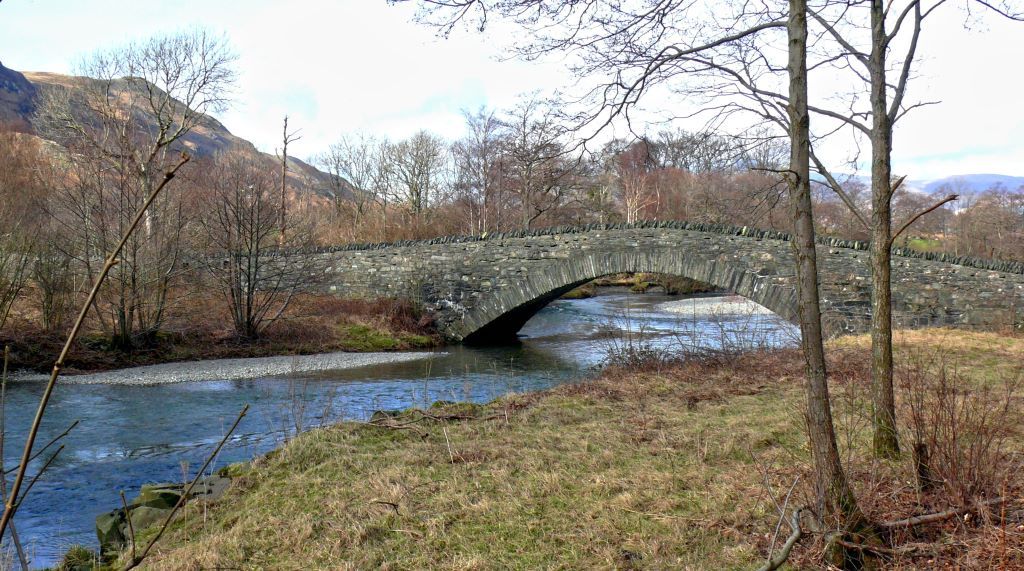
A revolting river of raw sewage is running into some waterways in the national park at an alarming rate, an investigation by a global environmental charity has revealed.
According to Greenpeace’s investigative unit, Unearthed, some of the Lake District’s most sensitive wilderness areas are being flooded with effluent.
Unearthed mapped water company data on sewage spills in 2022 onto maps of England and Wales’ Sites of Special Scientific Interest (SSSIs), Special Area of Conservation (SACs), Special Protected Area (SPAs) and Ramsar sites (wetlands of international importance) to identify every pipe that discharged raw sewage within 50 metres of a protected nature site – Defra’s own definition of a “high priority” discharge site.
It found that almost 1,200 sewage overflow pipes discharged into sensitive wildlife habitats for more than 300,000 hours last year. This included 62,366 hours from United Utilities, which Unearthed claimed was the worst performing English water company on this measure by a large margin.
The River Derwent and Bassenthwaite Lake SAC, encompassing parts of Cumbria, including the Lake District, was one of the worst-hit areas, receiving 6,673 hours of sewage in 2022.
Elsewhere the Esthwaite Water SSSI received 2,738 hours of sewage in 2022 while Morecambe Bay and Duddon SPA received 14,786 hours of sewage. Locals had reported issues with swimming among human faeces around the bay on visits to the beach after heavy rainfall.
Nationally, the analysis found that 1,193 raw sewage overflows discharged within 50 metres of a protected area which equated to 305,963 hours of raw sewage spilled in protected areas.
The Government’s current Storm Overflow Reduction Plan, published last summer, outlines a target to ‘improve’ 75 per cent of pipes discharging into high priority areas by 2035, extending to all high priority areas by 2045.
Responding, a United Utilities spokesperson told The Keswick Reminder: “With the largest combined sewer network in the UK and highest levels of rainfall we are planning the biggest programme of storm overflow reduction in the country.
“By 2030 we will have invested £3bn tackling the issue, with more to follow.”
Studies have found that sewage being released into natural ecosystems elevates concentrations of nutrients, pathogens, endocrine disruptors, heavy metals, pharmaceuticals, recreational drugs and pesticides in the environment.
Aside from the chemical content, the release of sewage into slow-moving water can promote blooms of toxic blue green algae that can kill fish and aquatic plants, and animals that swim in the water or drink it, and can cause severe illnesses in humans.
Harmful algal blooms like these have been spotted in lakes including Windermere and Derwentwater, and symptoms seen include rashes, eye irritation, vomiting, diarrhoea, fevers and joint pain.
Megan Corton Scott, political campaigner for Greenpeace UK, said: “These are the casualty figures from a war which nature is losing, badly.
“Private water companies treat our countryside as a toilet, and their vandalism doesn’t stop at some of our most sensitive conservation areas.
“Beloved lakes, beaches and rivers, rare wildlife habitats, sites of special scientific interest are being sacrificed so water company bosses and shareholders can continue to reap huge profits.
“The idea that the sewage industry could be shamed into doing the right thing has been tried and failed – nothing matters to them except profit.
“The only way to force them to clear up their mess is to make all of their dividends and bonuses dependent on actual results. Instead of long-term targets and empty threats, ministers should actually force the water companies to do the job we pay them for, starting now.”
Vikki Salas, assistant director of the Keswick-based West Cumbria Rivers Trust, told the Reminder: “We remain extremely concerned about the level of discharges and their impact on our waterways.
“Exposure to untreated contaminated wastewater poses a serious risk to people and wildlife; that this can happen within watercourses with the highest level of environmental protections highlights the extent of the problem.
“We will continue to work with our partner organisations to push for increased transparency surrounding discharges, better regulation and accountability on this issue.
“These sorts of spills have become the norm rather than the exception and this is unacceptable, we support our industry’s calls to ensure that in future they only happen under exceptional circumstances and our beautiful River Derwent (and indeed all our rivers) are healthy environments, safe for people and wildlife to enjoy.”








